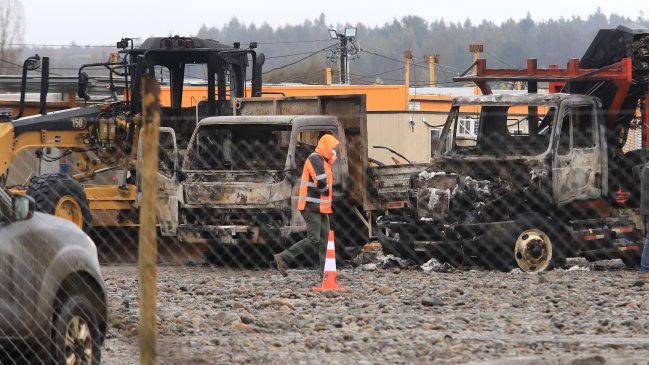Rodrigo Ruiz Godoy, Lawyer, Master in Labor Law, Educational Management, and Corporate Social Responsibility. Specialist in Labor and Social Security Law. University Professor.
The Trade Association of Forestry Contractors A.G (ACOFORAG) has filed a submission with the ILO (International Labour Organization) seeking a statement from the international body regarding the insecurity and violence faced by companies and forestry workers in the southern macrozone.
The ILO is an international organization whose primary objective is the promotion of norms and policies that favor decent work. Its structure is tripartite (employers, workers, and member states), and the decisions made within it materialize in so-called "conventions," which create obligations for states in case of non-compliance. In this case, ACOFORAG has initiated a claim process against the State of Chile for failing to meet its commitments under Convention 187 (2006) on the promotional framework for occupational safety and health, which Chile ratified in 2011.
We argue that the State of Chile has failed in its duty to protect forestry workers and employers from acts of violence and terrorism, leading to an unacceptable increase in injuries and work-related deaths due to terrorist attacks in various forestry operations. Although this ILO procedure is still in its early stages, we believe it is necessary to use all legal tools, both national and international, to raise awareness among authorities about the insecurity faced by forestry workers and demand concrete actions to restore the rule of law in the area.
A favorable ruling from the ILO could compel the State of Chile to make a serious and real commitment toward creating a national program for forestry occupational safety and health, focusing on preventing and eliminating the risk of attacks that threaten the lives, health, and physical and mental integrity of forestry workers and contractors in the country.
It is likely that the ILO's decision-making bodies will take some time before ruling on this request. However, it is important to emphasize that the parties bound by the conventions are the states, not the current governments. Thus, regardless of the political affiliation of the government in power when the ruling is issued, it will have to respect and comply with the decision, or else face international liability for non-compliance.







Comments (0)
No comments yet. Be the first to comment!
Leave a comment